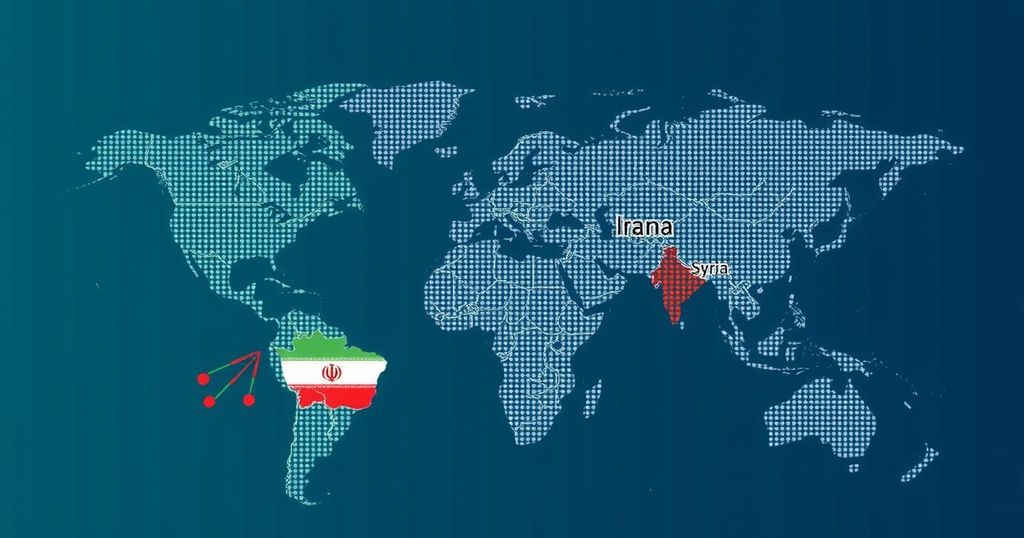Global Crisis Update: Humanitarian Issues in Syria, Rights Violations in Iran, and Election Preparations in South Sudan

Ongoing conflicts in Syria are worsening the humanitarian crisis, causing humanitarian operations to be suspended due to violence. Survivors of the 2022 protests in Iran are demanding accountability for human rights abuses. In South Sudan, the UN urges provincial governors to ensure civic freedoms in anticipation of elections scheduled for December 2026.
The humanitarian crisis in Syria is escalating due to ongoing conflicts, according to the UN Office for the Coordination of Humanitarian Affairs (OCHA). Recent airstrikes in the region led to multiple casualties, including a Syrian Arab Red Crescent volunteer. Consequently, all humanitarian operations at border crossings have been halted, revealing a severe need for the protection of humanitarian workers. Concurrently, violence in the provinces of Idlib and western Aleppo has intensified, leading to significant disruptions in education and healthcare services. Artillery shelling has tragically claimed the lives of several children, prompting multiple NGOs to halt their aid operations.
In Iran, survivors of the 2022 “Woman, Life, Freedom” protests are urging accountability for human rights violations perpetrated during the government’s crackdown. Testimonies from over fifty Iranian survivors who fled the country revealed stories of torture and arbitrary detention. The Independent International Fact-Finding Mission, which conducted the meetings in Germany, aims to prioritize a victim-centered approach in their recommendations to the Human Rights Council. Their next report, scheduled for March 2025, will include strategies for accountability and rehabilitation.
On another front, the head of the UN Mission in South Sudan, Nicholas Haysom, has called on local governors to enhance civic and political freedoms in preparation for the nation’s upcoming elections in December 2026. During the Governors’ Forum in Juba, he emphasized the importance of fostering open dialogue and effective public management to ensure a successful democratic process. Haysom also highlighted the necessity of security measures and comprehensive training for forces to facilitate stability before the elections.
This article discusses critical humanitarian situations in three distinct regions: Syria, Iran, and South Sudan. In Syria, the conflict has exacerbated humanitarian issues, prompting a halt to aid operations amidst rising violence. In Iran, survivors of state repression from the protests sparked by the death of Jina Mahsa Amini are demanding accountability for human rights abuses. Meanwhile, in South Sudan, preparations for the upcoming democratic elections are underway, with calls for improved civic freedoms and governance from UN officials, emphasizing the importance of public trust and security in the electoral process.
The stated humanitarian challenges in Syria, the calls for justice in Iran, and the electoral preparations in South Sudan reveal a shared urgency for human rights, accountability, and effective governance. The necessity for international support for displaced individuals in Syria, justice for human rights violations in Iran, and the establishment of a robust democratic framework in South Sudan illustrates the ongoing struggle for human dignity and governance in conflict-affected regions.
Original Source: news.un.org








